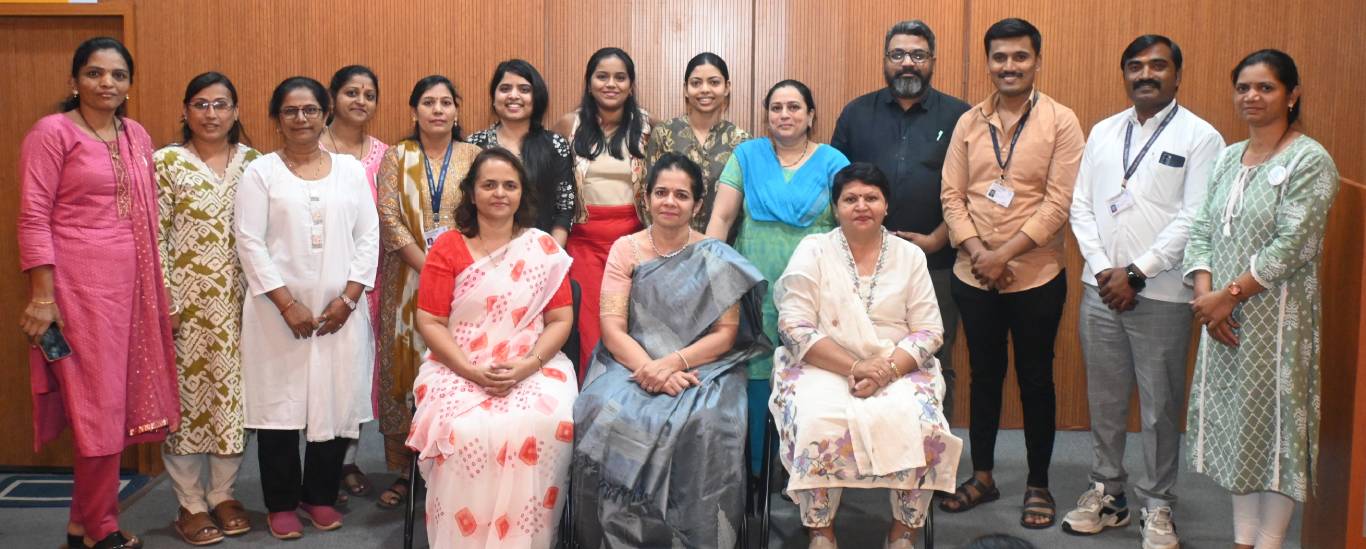-
A child from Bhambarde village joined the COHORT program two years ago. Her father, a busy village leader and businessman, was diagnosed along with his family during our health check-up. All three were overweight, and the father had very high cholesterol levels. After following our doctor’s advice on diet and exercise, his cholesterol and weight significantly reduced.
The family now walks or cycles daily to their hotel and actively monitors their health. Both daughters play badminton every evening with a racket gifted by HCJMRI, increasing their physical activity.
The father praised HCJMRI for its consistent follow-ups and said no other organization cares for children's health the way HCJMRI does.
-
During her child's annual check-up at the LG Health Centre, a mother expressed concern about her daughter's poor appetite and slow growth. Initially looking for a quick solution with tonics, she was guided by the HCJMRI team to focus on improving the child’s diet and physical activity.
After assessing the child’s low activity and unbalanced diet, and understanding the challenges of managing a large family, the team provided practical nutrition advice suited to the family’s lifestyle. The mother was convinced to shift from tonics to holistic care, and she appreciated the team’s support and guidance.
-
-
A Cohort girl from Ganegaon was hospitalized due to a blood sugar issue, but her parents were unsure about the diagnosis and next steps. On our advice, they revisited the doctor and learned that their daughter had Type 1 Diabetes. Scared and confused, they came to the LG Centre, where our paediatric endocrinologist, Dr. Anuradha Khadilkar, explained the condition in detail and guided them with the right steps, including enrollment in the Sweetlings program at Jehangir Hospital.
Feeling reassured and informed, the parents said, “You showed us the right path. Our stress has reduced, and we now know how to manage this condition.” They expressed heartfelt gratitude to the entire HCJMRI team.
-
A 58-year-old woman attended our health camp in Khandale village, where she was first diagnosed with hypothyroidism and later with hyperthyroidism. She struggled with rapid weight loss, low confidence, and social anxiety, and couldn’t even ride her two-wheeler. Our doctor referred her to Sassoon Hospital for treatment.
Eight months later, she returned to the centre confidently riding her two-wheeler, having gained 5.8 kg and showing signs of improvement. Her goitre had also slightly reduced. She was happy and grateful, and her case highlights how our health camps help people recognize health issues and seek timely care.
-
Teachers from schools in Bhambarde and Phand Wasti visited the Adolescent Cohort Study at the LG Center in Ranjangaon. They observed the annual health check-ups of their students and were impressed by the advanced equipment and systematic approach. They emphasized the importance of monitoring children's growth and appreciated the initiative.
The teachers thanked HCJMRI, Jehangir Hospital, and LG Company for their meaningful work in improving adolescent health in rural areas.
-
A Cohort father from Waghale village took time out from his hectic schedule to visit the LG Center, where he was found to have high BP. Our doctor explained the causes and advised him to monitor his BP for seven days and stop tobacco use, which he had been consuming for 10 years.
To our surprise, he began visiting daily for BP checks and shared that he was trying to quit tobacco. Over time, his BP levels improved, and he expressed happiness and gratitude for the support and guidance he received.
-
 Hirabai Cowasji Jehangir Medical Research Institute
Hirabai Cowasji Jehangir Medical Research Institute




